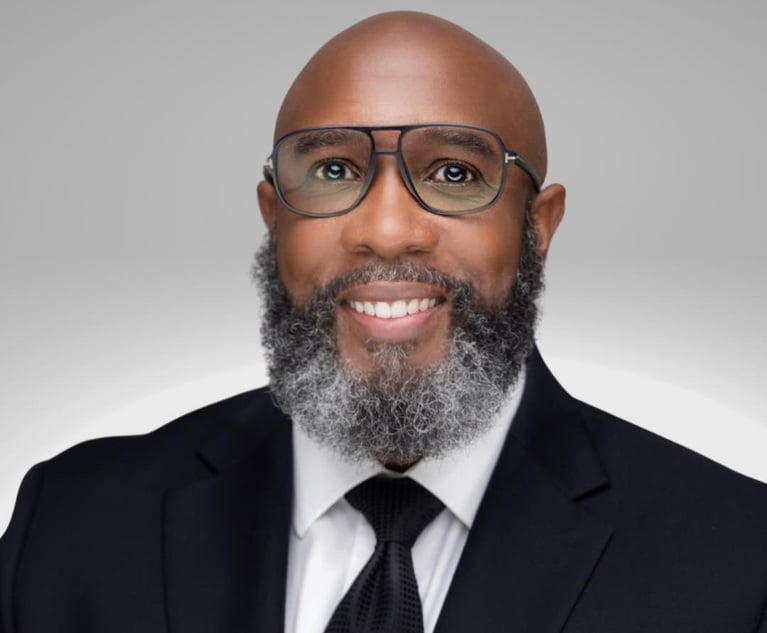Richard Serafini: The Sherlock Holmes of White-Collar Criminal Law
"It's like doing a jigsaw puzzle and not having the top of the box," says white-collar criminal defense attorney Richard A. Serafini as he looks back on more than 20 years working fraud cases for federal and state governments.
September 07, 2018 at 02:01 PM
7 minute read
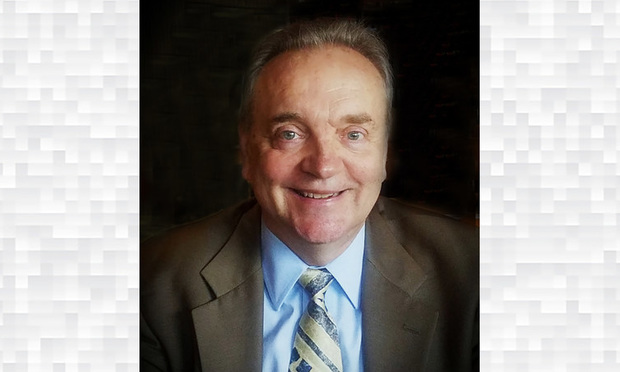 Richard Serafini of Serafini Law Offices in Fort Lauderdale. Courtesy photo.
Richard Serafini of Serafini Law Offices in Fort Lauderdale. Courtesy photo.
The more complicated, long-winded and perplexing a case, the more fondly Richard A. Serafini will look back on it.
“It's like doing a jigsaw puzzle and not having the top of the box,” Serafini said. “You have to kind of see how it ends up.”
Like Sherlock Holmes following bread crumbs, Serafini's appetite for “intellectual challenge” propelled him through more than 20 years of federal and state government lawyering, where he shared an arena with the likes of Attorney General Janet Reno and Manhattan District Attorney Robert M. Morgenthau.
But Serafini's affinity for puzzles really took hold seven years into his career, when he joined the fraud team at the U.S. Securities and Exchange Commission in New York.
“Not a lot of people wanted to do accounting cases, so I bought an accounting textbook, taught myself accounting, and asked some of the very good accountants we had on staff a lot of simple questions to make sure I understood in layman's terms,” he said.
Because the way Serafini sees it, no matter the complexity, attorneys have no more than 20 seconds to “succinctly” explain their theory to a jury.
“That's really what you want to be able to do,” Serafini said. “If you're going to take two minutes to explain just the theory of what you're doing to a jury, you're going to lose them. And then whatever it takes, whether it's one day or five months of putting meat on the bones, that's what you're doing. But you're starting out with something very understandable.”
Take the trial of former Trump campaign manager, Paul Manafort, for example.
“If you sat down and thought about it, you could do it in about 20 seconds. You've got a guy who's greedy and didn't want to pay taxes, so he hid the money offshore and he lied to the government about how much money he had. Then, when the gravy train ended, he still wanted to live high in the hog, so what did he do? He lied to banks so he could get money to continue his lifestyle. That's the fraud, that's what the case is going to prove, and that's it,” Serafini said.
About 20 years ago, Serafini tried a case before Judge T. S. Ellis, who recently oversaw Paul Manafort's trial, described by press as a “ringmaster of the court” and a “Caesar in his own Rome.”
“It was a learning experience because, as everybody knows from listening to the news, he's a tough judge and he's tough on the attorneys,” Serafini said. “If you're making an argument or doing something that he doesn't think is worth the court's time, he will let you know in no uncertain terms.”
It was “rigorous,” Serafini said, but he got convictions.
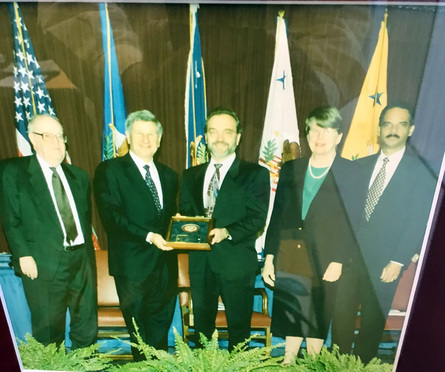 Richard Serafini (center) receiving an award from (left to right) Deputy Assistant Attorney General for the Criminal Division John Keeney, Assistant Attorney General for the Criminal Division James Robinson, Attorney General Janet Reno and Deputy Attorney General Eric Holder. Courtesy photo.
Richard Serafini (center) receiving an award from (left to right) Deputy Assistant Attorney General for the Criminal Division John Keeney, Assistant Attorney General for the Criminal Division James Robinson, Attorney General Janet Reno and Deputy Attorney General Eric Holder. Courtesy photo.Serafini arrived at the organized crime and racketeering division of the U.S. Department of Justice in Washington, D.C., in 1990, when Robert Mueller — now heading the Russia investigation — was assistant attorney general.
There, Serafini handled an array of high-profile, large-scale and high-stakes fraud trials, and says the key to keeping a cool head when the nation is watching is to “approach it like any other case.”
“All you can do is your best. A good, professional job,”Serafini said.
But ultimately, the best trial lawyers are those who get a kick out of the limelight.
“If you're going to be a litigator, you've got to enjoy being in front of people and you have to kind of get a thrill out of being in the courtroom,” he said.
In 2000, after a two-year investigation, Serafini tried the leadership of an Asian organized crime group in what became a five-month trial in San Francisco.
“That was a lot of fun,” he said.
Defendant John That Luong and three of his cronies were accused and ultimately convicted of trafficking heroin and conducting an armed heist in which they stole $10 million in merchandise from a California microchip firm.
“It was a case that had a really significant impact because these guys were creating a lot of harm in some of the Asian communities in the Bay Area,” Serafini said.
At the time of the trial, Mueller was the district attorney, and Serafini observed him from afar.
“He was very straight-laced, and of the highest integrity. He didn't cut corners in any way, shape or form,” Serafini said.
When he notices significant “professionalism” and “honesty” in other legal professionals, Serafini makes a point of trying to adopt those qualities.
“I try to pull from this person and that person what I think is important,” he said.
Another ”fun” case for Serafini came out of Fort Lauderdale, where he's now based.
“It was a young African fellow who was arrested by homeland security for trying to sell uranium to Iran. He was brought halfway across the world to stand trial,” Serafini said.
This time, Serafini represented the defendant, 33-year-old Patrick Campbell, who was prosecuted after an undercover sting operation.
Click here to read Bloomberg's article about the case
“Going into it I thought we had a defense. And as I became more acquainted with the defendant and what happened, it turned out that we did. I got an acquittal for the fellow, and I think that justice was done,” Serafini said.
There have also been some “silly” cases.
“When I was getting started in New York City as a local prosecutor I remember having a case one time where a garbage-hauling company had literally dragged the garbage truck in the middle of the night over parking meters to steal the whole parking meter,” said Serafini.
In that case, Serafini recalled that bringing evidence into court meant “walking in with a parking meter over your shoulder and saying, 'This is what happened.'”
“A supervisor of mine also had a strange case where someone was stealing body parts from hospitals, from the morgue to do voodoo rituals,” he said.
In 2001, Serafini entered the world of private practice and later formed his own firm in Fort Lauderdale, where he represents people charged with fraud in federal or state courts.
Looking back on his career, Serafini sees one main takeaway: “I learned that prosecutors have an enormous power, and it's important to be humble in the use of that power.”
Richard A. Serafini
This content has been archived. It is available through our partners, LexisNexis® and Bloomberg Law.
To view this content, please continue to their sites.
Not a Lexis Subscriber?
Subscribe Now
Not a Bloomberg Law Subscriber?
Subscribe Now
NOT FOR REPRINT
© 2025 ALM Global, LLC, All Rights Reserved. Request academic re-use from www.copyright.com. All other uses, submit a request to [email protected]. For more information visit Asset & Logo Licensing.
You Might Like
View All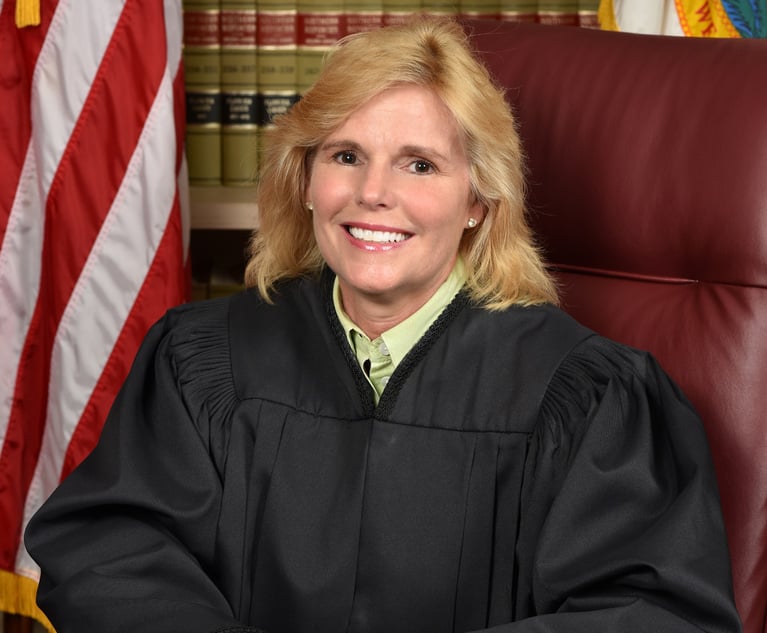
Carol-Lisa Phillips to Rise to Broward Chief Judge as Jack Tuter Weighs Next Move
4 minute read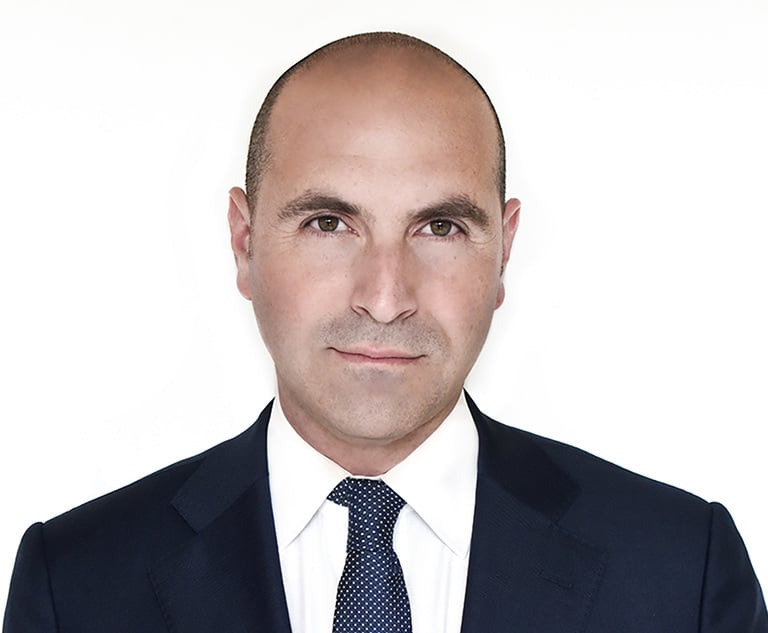
Growing Referral Network, Alternative Fees Have This Ex-Big Law’s Atty’s Bankruptcy Practice Soaring
5 minute read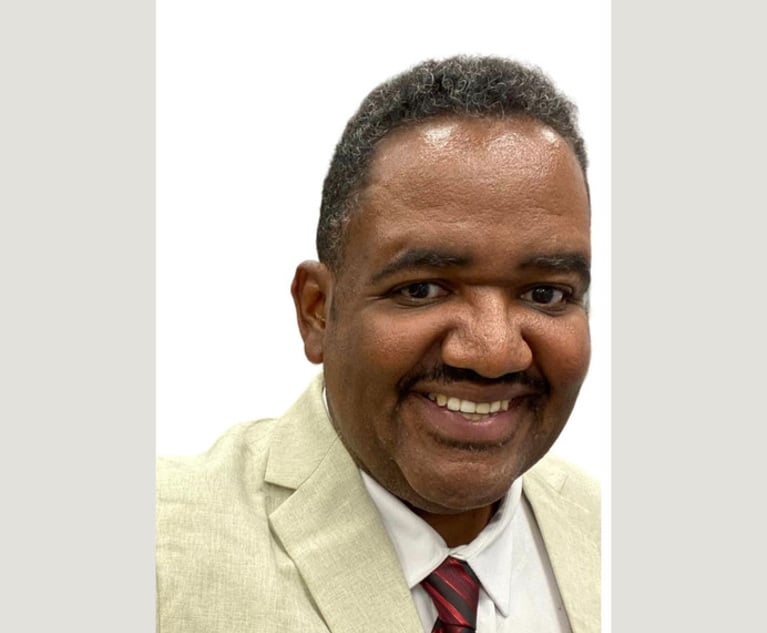
Against the Odds: Voters Elect Woody Clermont to the Broward Judicial Bench
4 minute readTrending Stories
- 1Crypto Crime Down, Hacks Up: Lawyers Warned of 2025 Security Shake-Up
- 2Atlanta Calling: National Law Firms Flock to a ‘Hotbed for Talented Lawyers’
- 3Privacy Suit Targets Education Department Over Disclosure of Student Financial Data to DOGE
- 4Colwell Law Group Founder Has Died in Skiing Accident
- 5Bar Report - Feb. 10
Who Got The Work
J. Brugh Lower of Gibbons has entered an appearance for industrial equipment supplier Devco Corporation in a pending trademark infringement lawsuit. The suit, accusing the defendant of selling knock-off Graco products, was filed Dec. 18 in New Jersey District Court by Rivkin Radler on behalf of Graco Inc. and Graco Minnesota. The case, assigned to U.S. District Judge Zahid N. Quraishi, is 3:24-cv-11294, Graco Inc. et al v. Devco Corporation.
Who Got The Work
Rebecca Maller-Stein and Kent A. Yalowitz of Arnold & Porter Kaye Scholer have entered their appearances for Hanaco Venture Capital and its executives, Lior Prosor and David Frankel, in a pending securities lawsuit. The action, filed on Dec. 24 in New York Southern District Court by Zell, Aron & Co. on behalf of Goldeneye Advisors, accuses the defendants of negligently and fraudulently managing the plaintiff's $1 million investment. The case, assigned to U.S. District Judge Vernon S. Broderick, is 1:24-cv-09918, Goldeneye Advisors, LLC v. Hanaco Venture Capital, Ltd. et al.
Who Got The Work
Attorneys from A&O Shearman has stepped in as defense counsel for Toronto-Dominion Bank and other defendants in a pending securities class action. The suit, filed Dec. 11 in New York Southern District Court by Bleichmar Fonti & Auld, accuses the defendants of concealing the bank's 'pervasive' deficiencies in regards to its compliance with the Bank Secrecy Act and the quality of its anti-money laundering controls. The case, assigned to U.S. District Judge Arun Subramanian, is 1:24-cv-09445, Gonzalez v. The Toronto-Dominion Bank et al.
Who Got The Work
Crown Castle International, a Pennsylvania company providing shared communications infrastructure, has turned to Luke D. Wolf of Gordon Rees Scully Mansukhani to fend off a pending breach-of-contract lawsuit. The court action, filed Nov. 25 in Michigan Eastern District Court by Hooper Hathaway PC on behalf of The Town Residences LLC, accuses Crown Castle of failing to transfer approximately $30,000 in utility payments from T-Mobile in breach of a roof-top lease and assignment agreement. The case, assigned to U.S. District Judge Susan K. Declercq, is 2:24-cv-13131, The Town Residences LLC v. T-Mobile US, Inc. et al.
Who Got The Work
Wilfred P. Coronato and Daniel M. Schwartz of McCarter & English have stepped in as defense counsel to Electrolux Home Products Inc. in a pending product liability lawsuit. The court action, filed Nov. 26 in New York Eastern District Court by Poulos Lopiccolo PC and Nagel Rice LLP on behalf of David Stern, alleges that the defendant's refrigerators’ drawers and shelving repeatedly break and fall apart within months after purchase. The case, assigned to U.S. District Judge Joan M. Azrack, is 2:24-cv-08204, Stern v. Electrolux Home Products, Inc.
Featured Firms
Law Offices of Gary Martin Hays & Associates, P.C.
(470) 294-1674
Law Offices of Mark E. Salomone
(857) 444-6468
Smith & Hassler
(713) 739-1250





